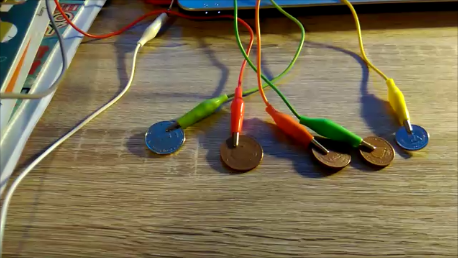Scratch, Cigarettes and Reconciliation
Yesterday was another day of trying out my games with my
students. Again some of them were really interested in how I made them and
would like to try using Scratch.
I work in Bosnia and Herzegovina and although some of my
students know some English I don’t think they know enough to be able to use
Scratch in English, so this morning I set out to find out if Scratch is available
in other languages. After a couple of seconds of searching I was happy to find
that Scratch is available in Croatian. You might ask what use is that when your
students are from Bosnia and Herzegovina? Surely you need to find Scratch in
Bosnian?
Although the civil war in Bosnia and Herzegovina ended over
20 years ago, the consequences of it are still part of everyday life. There are
three official languages in Bosnia and Herzegovina; Bosnian, Croatian and Serbian.
Every child has the right to an education in their mother tongue and so the
children I teach go to different schools because they are from different ethnic
backgrounds and therefore speak different languages. But do they really? How is
it then that when they come together every Saturday for violin club they have no
problem understanding one another?
Language is being used as a tool to perpetuate nationalism
and this happens through the education system so that children are
indoctrinated with the idea of ‘them and us’ from a young age. What should be
regarded as one language with a number of dialects and variations has been separated
into three separate languages ‘as a way of both creating and solidifying
divisions and reminding people of their differences.’[1]
As long as this system continues the much-needed reconciliation between people
groups is hindered.
Contact is essential for reconciliation because it is
through contact that relationships can be restored, people’s perceptions of one
another can change and the ‘rehumanisation of the other’ can occur.[2]
I hope that in some small way our violin club is helping the reconciliation process
in the town where I live and that learning to use Scratch together no matter
what language it says it is in will be a great experience for all the children
involved.
There is so much I could say about this, it is something that
I feel very strongly about, but I will stop here with this quote:
‘These children are BiH’s future and both what they are
learning and the way in which they are learning it will have fundamental
implications for the country’s long-term peace and stability.’[3]
*The absurdity of the language situation can be seen by
looking at this everyday sight - A packet of cigarettes with ‘smoking kills’
written on it in the three official languages of BiH. The third line, although
written in cyrillic script sounds exactly the same as the other two when spoken.
Clark, Janine Natalya. “Education in Bosnia-Hercegovina: The Case for
Root-and-Branch Reform.” Journal of Human Rights 9, no. 3 (August 19,
2010): 344–62. doi:10.1080/14754835.2010.501269.



Comments
Post a Comment